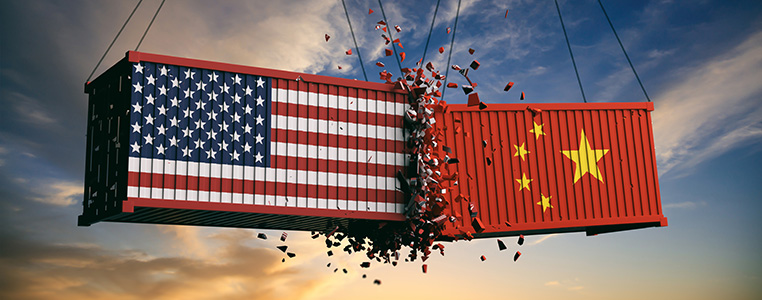The deadline for a trade deal has come and gone and starting today, the U.S. will add more tariff money to the U.S. treasury but U.S. consumers will largely foot the bill via higher prices across most of the important spending categories.
I have a hard time believing most investors/consumers won’t realize this strategy designed to help is most likely going to hurt he American consumption engine. Yes, China has been a bad actor for a very long time, but our reliance on China to provide cheap goods that keep America’s consumption engine running is NOT to be ignored. There is no free lunch. Uncertainty into the markets will likely create more volatility spasms in both directions. When committed buyers step away and short-term gamblers and algos & dark pools trade on headlines and very short-term momentum signals, the average investor can get a frequent bout of sea-sickness.
Brands that do not have too much tariff risk in China – Square (payment processing for small businesses), Google, Schwab, Facebook, Home Depot, Intuit (small business & tax software), Netflix, Shake Shack (delicious burgers and milkshakes), Costco, Visa, Live Nation (the best live concerts & entertainment), Bristol Meyers, Mastercard, & Paypal (mobile payments) come to mind.
Brands that are located and focused almost exclusively on China and those U.S. brands serving Asia: Spotify (streaming music & podcasts), Nike, Starbucks, Ferrari, Louis Vitton (luxury apparel, cosmetics, liquor, jewelry), Lululemon, Alibaba (China E-Commerce, banking & mobile payments, cloud computing and artificial intelligence), TenCent (VC arm, video gaming, E-Commerce, mobile payments).
In summary:
The tariff situation is not something that I believe will be solved any time soon. That will create higher volatility so we should just get used to it for now. This volatility, while sometimes stressful, offers real long-term opportunity as great brands get sold on short-term headlines. Companies are great at adapting to changing dynamics. There may be short term noise around earnings and price increases to consumers, but consumers also do a pretty good job at adapting. If a brand is highly relevant and resonating with consumers, they will continue being loyal, hiked price or not, if they are not adding value to the end user, they are always vulnerable and their stocks are to be avoided anyway.


